
Battle for Grace has all that. But it's not fiction; every word of it is true. Ballerina Cynthia Toussaint and her partner, John Garrett, were show-biz kids, overflowing with talent and chutzpah, ready to take on the world and make it their oyster. But an injury triggers the beginning of a most insidious, life-altering, excruciating disease and brings their dreams to a screeching halt.
I'm a voracious reader, but I don't recall too many books that have impacted or impressed me as deeply as Battle for Grace. Toussaint takes us on a no-holds-barred journey through her descent into the hell of Chronic Regional Pain Syndrome, also known as Reflex Sympathetic Dystrophy. CRPS/RSD is often referred to as the "suicide disease," as many sufferers find taking their own lives to be their only relief from pain likened to being burned alive. Toussaint courageously reveals her suffering, the resulting isolation, and the psychological impact CRPS/RSD had on her and her caregivers. Yes, the journey gets quite ugly and rough. Toussaint falls victim to corruption in a health care system that undermines her psychological state and delays treatment until the disease progresses to the point of being incurable. The turmoil and chaos that ensues more than tests the glue of her relationship with Garrett. Her soul-baring candor gives us a true picture of how this disease chews up lives and spits them out.
It is Toussaint's tenacious spirit and the deep love of her partner, Garrett, that allow them to rise from the ashes to become the unstoppable activists that they are today. From raising awareness of the plight of women in pain and helping to bring an unscrupulous HMO to its knees, to the creation of their organisation, For Grace, their story is one of passionate commitment to making this world a better place.
Each chapter of Battle for Grace includes Garrett's take of the circumstances and his personal experience. His voice adds an intimate perspective from his roles as both caregiver and life partner. Through him we see how deeply our illnesses impact the lives of those who care for us, and it isn't very pretty. But Garrett's deep devotion to Toussaint is soul-stirring and inspiring, a testimony to how true love can endure life's most heinous trials.
I highly recommend Battle for Grace to sufferers with CRPS/RSD, their caregivers...and everyone else in this world. Not only does it help us to understand a condition that has been so vastly misunderstood, but it gives the reader a candid look into the lives of two remarkable, inspiring people. Anyone, with chronic illness or not, will find something to feed their soul, because each and every one of us, in one way or another, is fighting our own battle for grace. It's great to know that it's a battle that can be won.
You can learn more about Battle for Grace from Toussaint's website, www.forgrace.org, which also provides wonderful resources and support for women in pain, or and purchase the book from Amazon in paperback, or in e-book format for Kindle or other readers.

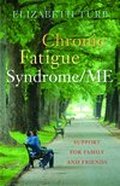
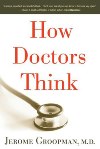
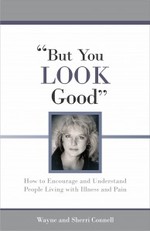

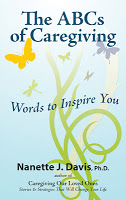

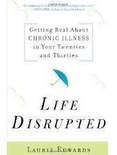
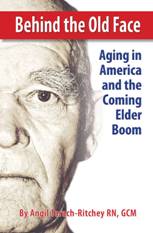
 RSS Feed
RSS Feed